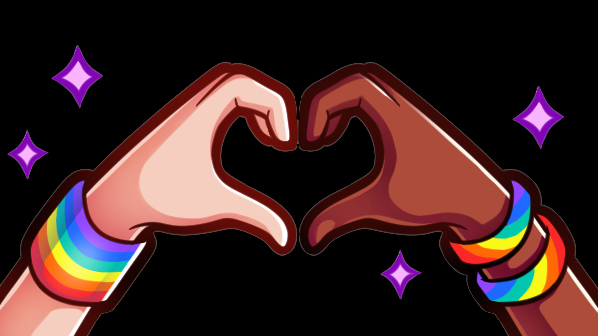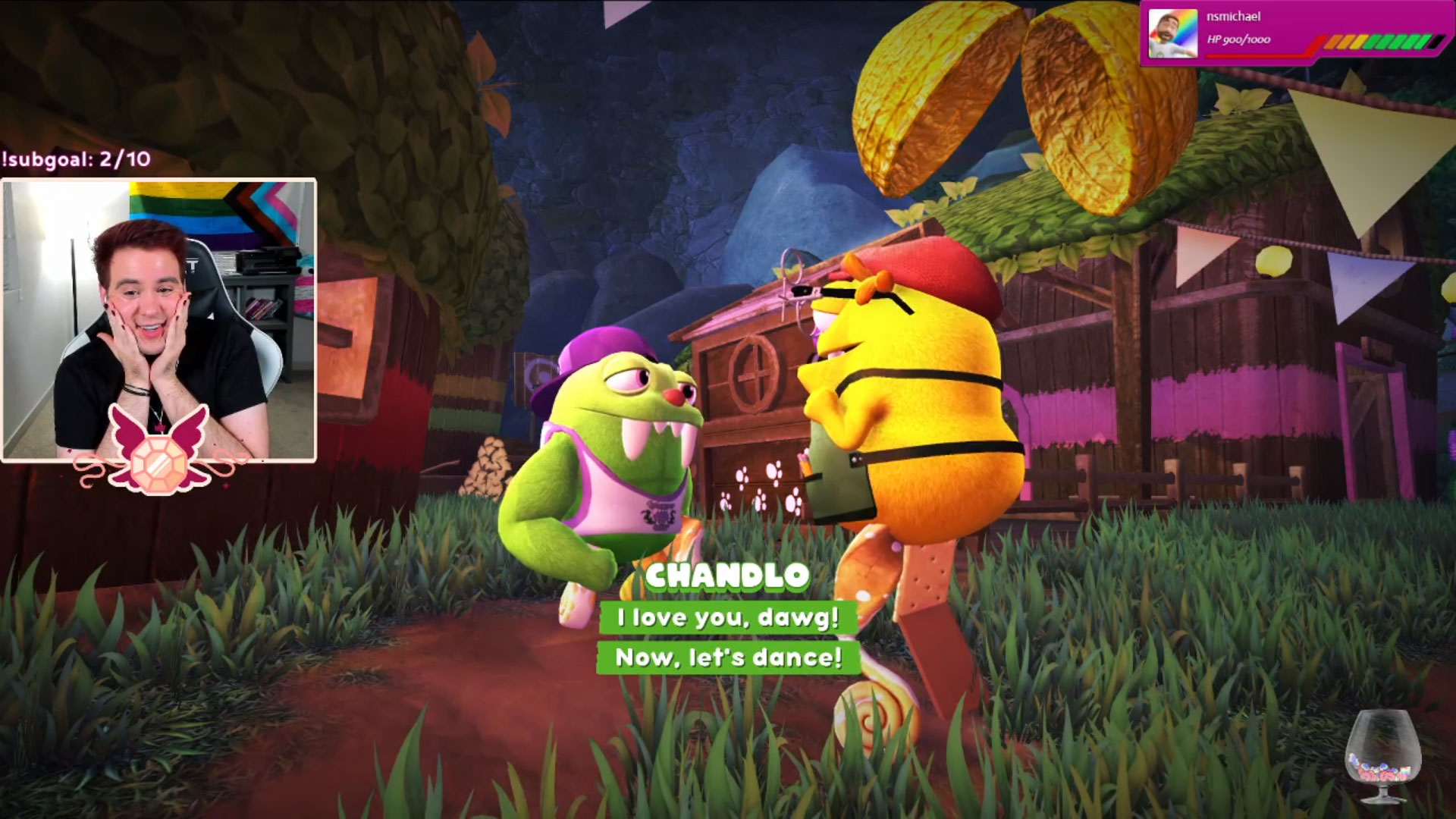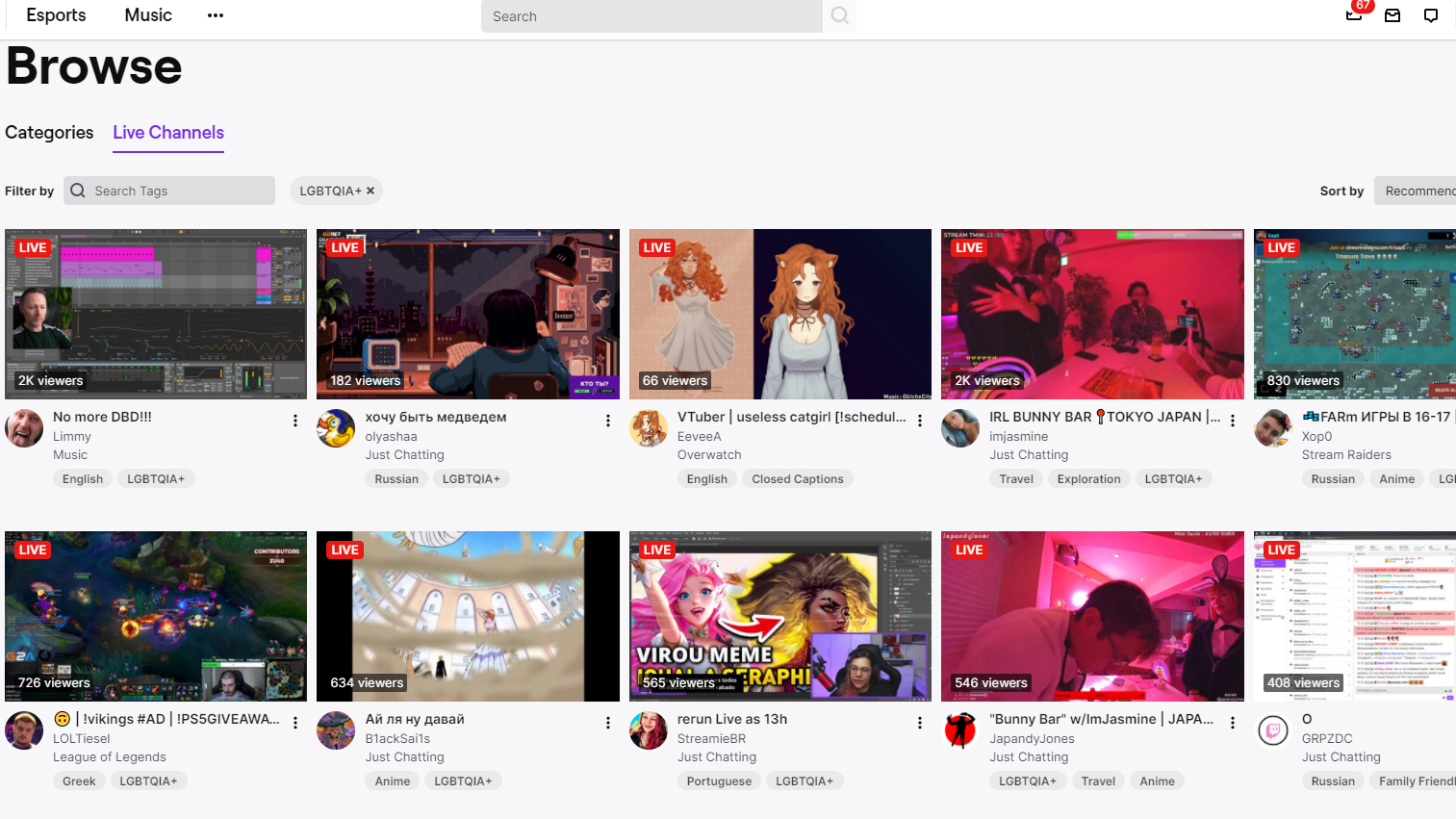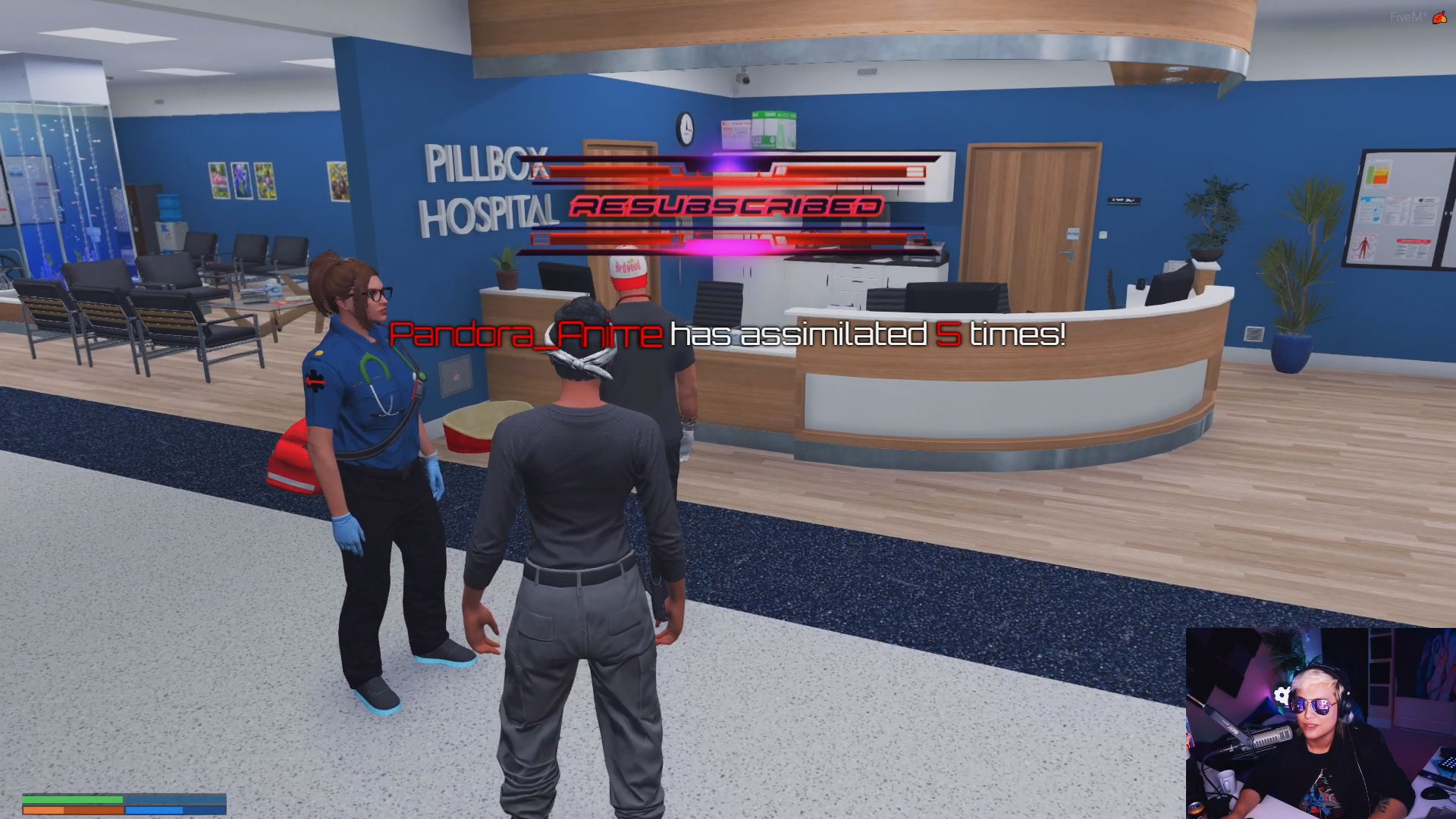Twitch LGBTQIA+ tags: do they work?
The fight for visibility

It’s vital for LGBTQIA+ streamers to create safe spaces on Twitch. Beyond just gaming online, it allows like-minded people to share their experiences and discuss pertinent issues without fear of trolling.
But how do you find these communities amongst the thousands of streamers on Twitch? The tag system.
Each streamer can ‘tag’ their stream with specific categories set by Twitch that can be filtered, from English-speaking and family friendly, to educational, mental health, and specific content genres. A tag exists for LGBTQIA+ streamers, but many queer streamers feel it’s insufficient for the visibility of the community. So what works and what needs to be improved?
A double-edged sword

On the plus side, the LGBTQIA+ tag certainly increases discoverability. Viewers can search the tag to immediately find queer content creators. And many streamers have noted that the tag is the main source of viewership.
"There are people of all kinds on Twitch and the best part is that everybody is welcome," says trans streamer Nikatine. "If you’re a viewer and you want to go on Twitch to find a community, being able to find that community is paramount to your experience on Twitch."
"If you’re a viewer and you want to go on Twitch to find a community, being able to find that community is paramount to your experience on Twitch."
Nikatine - Twitch Streamer
Higher visibility, though, works both ways; it also makes it easier for LGBTQIA+ streamers to be targeted by trolls and bots.
"Absolutely, people use the tags to find people and harass," says Cypher of Tyr, a member of the popular Rainbow Arcade team. "[Both] the jagoff that stalked me and my community came through when I was using the LGBTQIA+ tag."
Get daily insight, inspiration and deals in your inbox
Sign up for breaking news, reviews, opinion, top tech deals, and more.
There are whole Reddit threads and Discord channels dedicated to harassment of LGBTQIA+ streamers and other minorities, so banning trolls is sadly a regular occurrence. For popular streamers with a dedicated moderation team, trolls are quickly banned without interrupting the stream. But for newer streamers just starting out, perhaps without the support of moderation teams, using the tag for positive visibility brings the risk of attracting trolls - an intimidating and off-putting side effect of streaming.
Improvements to Twitch’s moderation toolset and auto-banning homophobic or racist usernames could certainly help, as would banning based on IP address to prevent repeat offenders. Yet as streaming rises in popularity, Twitch’s slow advancements haven’t quite met demand.
Should allies use the LGBTQIA+ tag?

But it’s not just visibility that is a double-edged sword when it comes to the LGBTQIA+ tag. Anyone can use any of the tags on Twitch, so streamers can self-identify with the most relevant community. And, while this allows for self-expression, it has also led to self-appointed allies using the LGBTQIA+ tag to indicate their stream is a safe space for the queer community.
"If self-determined allies are the ones using it, then how do I know that you are actually part of the rainbow family or not? If I come into your channel and I see the LGBTQIA+ tag, my assumption is you’re also queer, not ‘I’m trying to be a safe space’."
Cypher of Tyr - Twitch Streamer
Twitch themselves describe the tag as "for streams in which the streamer chooses to identify as a member or ally of the LGBTQIA+ community". Support from allies is welcome, but some LGBTQIA+ streamers feel the use of the tag is controversial, as it can inadvertently overshadow the voices they’re trying to protect.
"There really is a completely unique and different experience when you know 100% that person has had a similar life experience to you when it comes to being queer," says non-binary streamer Jeff Brutlag. "So if you’re an ally who uses that and you are not part of the community, someone clicks on that stream thinking that you’re part of the community...and then suddenly you find out that you don’t actually identify with them, then you’re like ‘why is this happening, why would you do that?'"
Rather than offer support, the use of the tag by allies can feel more like a betrayal to some streamers. As Cypher of Tyr puts it: "If self-determined allies are the ones using it, then how do I know that you are actually part of the rainbow family or not? If I come into your channel and I see the LGBTQIA+ tag, my assumption is you’re also queer, not ‘I’m trying to be a safe space’."
One alternative Jeff suggests is for allies to make a panel on their about page, instead of using the tag. "If you really want to wear that badge then do it in a way that’s not going to overshadow our voices," he says. "Because we need to feel like we have a space on here especially as there is still so much homophobia."
The need for specificity

Another suggested improvement to the tag system is the need for more specific tags. At present, the all-encompassing LGBTQIA+ tag doesn’t allow for individual voices within the community. Trans streamers in particular are calling for a specific trans tag, a campaign that’s picking up steam.
Currently, tags exist for numerous types of streaming, down to granular detail, however, the same option is not offered to those in the LGBTQIA+ community. As Nikatine explains: "If I’m into fibre arts I can narrow my tag search down to cross-stitching, down to crochet, down to needlepoint...Quilting? Man, if I was a quilter I would be pumped that tags existed!"
So why can’t the LGBTQIA+ tag be split into further sub-sections? Nikatine continues: "I hear this argument a lot, that trans doesn’t deserve to be a tag because tags are reserved for content not for identity. But I would posit to you that if I had a podcast, and my podcast was focused on trans issues, wouldn’t that make it trans content?!
"It’s absurd to me. [It’s] the mark of somebody who just doesn’t really understand what content means in an online space. Because content is a descriptor for the thing that you’re doing, but it’s also a descriptor for your community to be able to find you."
"All they want in the world is to be able to see another trans person being happy and successful and doing good at something. And I have no idea why anyone would want to make it harder for them to find that in their lives. They just want to feel like it’s going to be ok."
Nikatine - Twitch Streamer
Nikatine hopes her stream can be welcoming for any vulnerable trans people questioning their identity. "All they want in the world is to be able to see another trans person being happy and successful and doing good at something. And I have no idea why anyone would want to make it harder for them to find that in their lives," she says. "They just want to feel like it’s going to be ok."
At present, without a trans tag, Nikatine has instead used the keycap making tag - a niche crafting genre - and has advised other trans streamers to do the same in order to find safety. But wouldn’t a specific trans tag expose streamers even more to hate?
Nikatine argues the good outweighs the bad: "I probably ban a couple of people a day. That number is going to stay the same whether or not I have a trans tag or I don’t have a trans tag."
She continues: "Having a tag is a completely user defined decision and if you feel like you’re getting trolled on a specific tag, just don’t use the tag anymore. It takes literally nothing for Twitch to add a tag, but it means the world to a lot of people to be able to have that and find other people like that."
Adding further tags could also be beneficial for other marginalized groups. Cypher of Tyr highlights the need for a POC tag for black streamers to find community and label themselves appropriately. "Then I could designate that I'm a queer, black, cis woman if someone was looking for community," she says. "It does trim down content related tags I can use on a stream, but if I'm just browsing to find new streamers to watch, it would make the search easier."
On a fundamental level, then, Twitch tags do their job in increasing visibility and highlighting communities. But in its current form, the system is easily misused or abused instead of protecting the streamers who need it most. And it lacks the required specificity to be truly representative - not only for the LGBTQIA+ community but other marginalized groups. There is a wealth of diversity across Twitch and that deserves to be celebrated.
This article was original published on December 5, 2020.